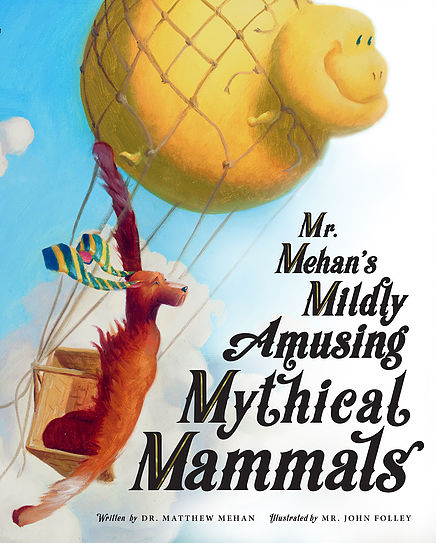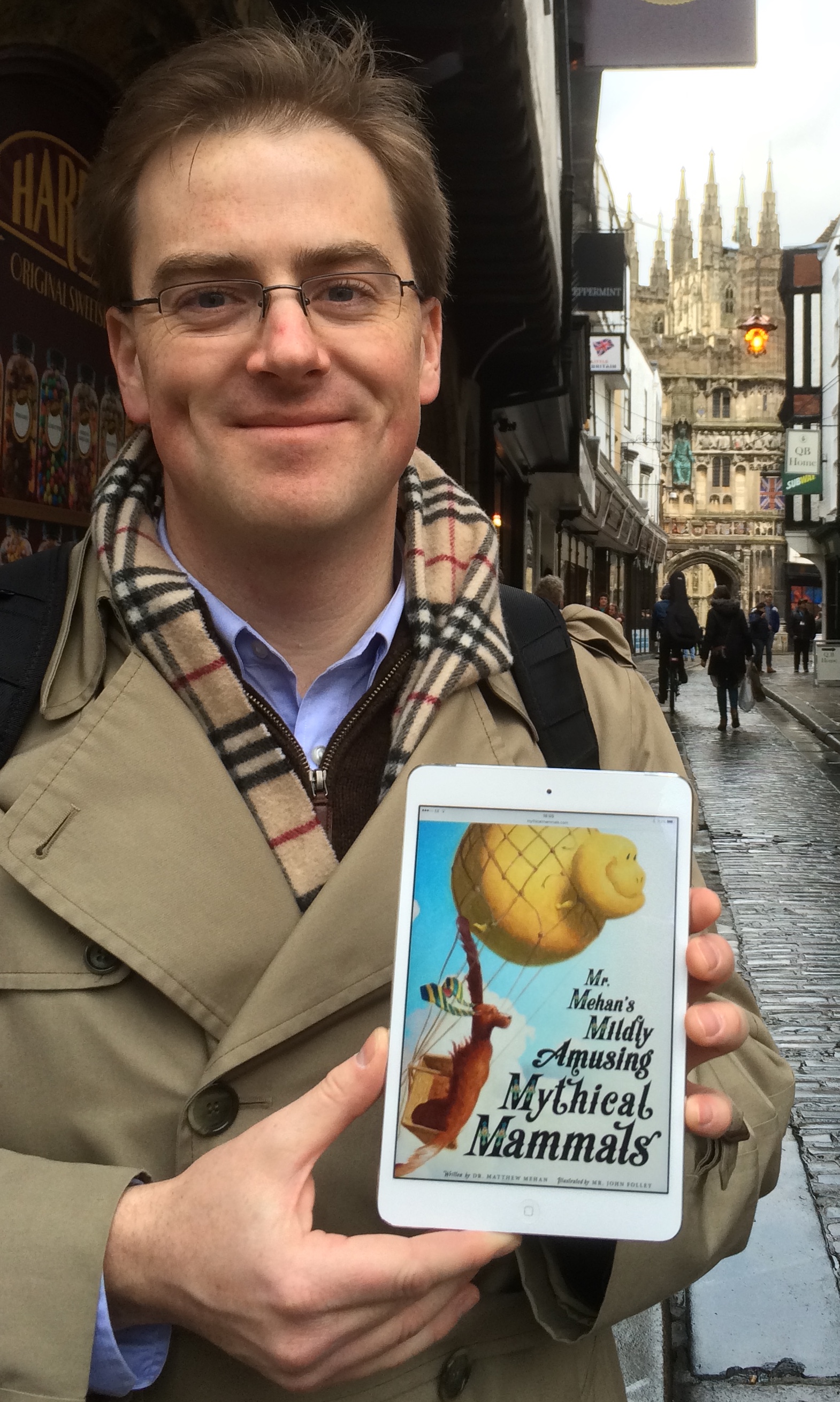Mr. Mehan Mentions Mammals and Much More
A delightful interview with the author of 'Mr. Mehan's Mildly Amusing Mammals'

Mr. Mehan's Mildly Amusing Mythical Mammals (TAN, 2019) may be one of my favorite books of 2019. I suspect it’s going to hold up and be not just a book that’s on my go-to gift list for families, but that I pick up and enjoy myself, with or without the kids.

The letters of the alphabet are interwoven with the animals, and many have a full-page illustration. They're described in verse (no surprise that Mr. Mehan has a Ph.D. in Shakespeare's teachings on poetry), and the rereading reminds me of a revisit to a favorite photo album.
Once you've made it through the alphabet of mammals, you're not even close to done. You’ll find 46 pages of glossary (a glossary worth reading more than once), a two-page description of each of the alphabetical letters (turns out there is more than meets the eye), and even an “I Spy” game you can play throughout the book.
Mr. Mehan was kind enough to speak with me about his writing, this book, and a few other fun topics. Enjoy our conversations, and be sure to get your own copy of the book too!
What got you started with this idea of the book?
I had always been writing, here and there, poems, essays, small historical vignettes, but I didn't get the idea for Mehan's Mammals until I read Plato's Phaedo, if you can believe it. In that work, we learn that Socrates spent his last weeks in prison setting Aesop's fables to verse. Why he did so turns out to be a long story, but I was persuaded by its conclusion: The truth one knows should be regifted to others using images that both delight and instruct. That's what Socrates was doing. And I like that guy.
But there's a second step. At the same time I was reading the Phaedo, I was also reading Thomas More's Epigrams, the Book of Proverbs, and a host of other subtle poets—all of them showed me that seemingly unconnected and episodic poems and proverbs can sequentially hang together to form a single and complete image that gives readers so much more than the separate little fables, proverbs or epigrams ever could. Once I saw how the greats in the tradition made whole works of art like that, I knew what Mehan's Mammals could be.
How would you characterize what Mehan's Mammals is, then?
Like all the mythical mammals in the book, it's a mix. Mehan's Mammals is a cross between a New England Alphabet Primer, a Medieval Bestiary, and cycle of lyric poems like the Greeks and Roman's used to write. It's audience is mixed too. Like Augustine said of Holy Scripture, the greatest model for our imitations in the written word, I wanted the book to have seemingly shallow points of entry but great depths for those with eyes to see. I wanted to write something for every audience, be they simple children or profound theologians or the rest of us in the middle too! That's why I call it "A Family Book" and not simply a children's book. It's for littles, middles, and bigs! And in large part I wrote a book this way to train young and old readers alike to read the Word of God, which is both simple and profound, humble, like a babe in the manger, and exalted, like the fiery thrones and dominions. My book is a pitiful shade, and image, of the sort of beautiful, manifold writing of the Old and New Testament. But it can help readers to see much more of what words and images can do, so they're better prepared to see more of what the Word can do!
Mehan's Mammals seems like a capstone work. How many years of work is in this book? Is it something you’ve been working on for decades, or did you sit down and pound it out in a few months? (or neither)
The first isolated poems were written 20 years ago, but I really began to shape the work in what little free time I had during graduate school. But about half of it was written in the last three years leading up to publication (although I'd been taking notes on the rest of it for a very long time, even writing poetic studies as background, if you can believe it). One of the poems was written in a single, very unusual afternoon! That's a whole story itself.

How did you and Mr. Folley collaborate and start working together?
We became friends first, in the greatest lunchroom in the world, that of The Heights School, where both of us taught at the time (I'm still there, but John's moved on to studio art full time). We would chat about the need for a Christian Humanist revival in the arts, about the important of image and how too many who desire to teach the truth ignore art and beauty in favor of naked or what we used to call unarmed argument. We decided we should work together, word and image. But before we embarked on the major project of Mr. Mehan's Mildly Amusing Mythical Mammals, we spent a year getting to know each other's process, making a weekly political cartoon. That process taught us how the other thought, and it taught me what it took to communicate my image to John so that he could paint and illustrate in a way that was fully integrated into the vision of the book. I'm serious when I say that poetry is fundamentally about the art of friendship—and it's a big theme in the book—but the way we brought the book about was, truly, a triumph of friendship for John and me. (We like to argue which of us is more like the Dally and which more like the Blug!)
What’s your favorite part of the book?
I'm not sure I have a favorite part, but if I had to choose, I'd say I love the Zealion song the most, with it's loving, simple voice that glosses the whole collection with, well, zeal and charity. If only one line of the whole work slipped into our cultural bloodstream, I'd want it to be the Zealion's song: "So what if loving each other takes work, / Somebody else play the role of the jerk!" Amen to that.
Will there be more books from you?
John Folley and I are planning a very simple spin-off of Mehan's Mammals, but we also have another, very different work in development now. But mum's the word until later! Big projects take time to be truly worthy.
--
You can explore more about Mr. Mehan's Mildly Amusing Mythical Mammals at the book's website (but be warned that you may meander there for many moons).











